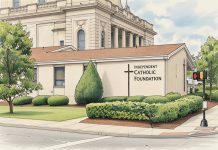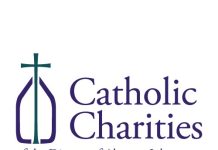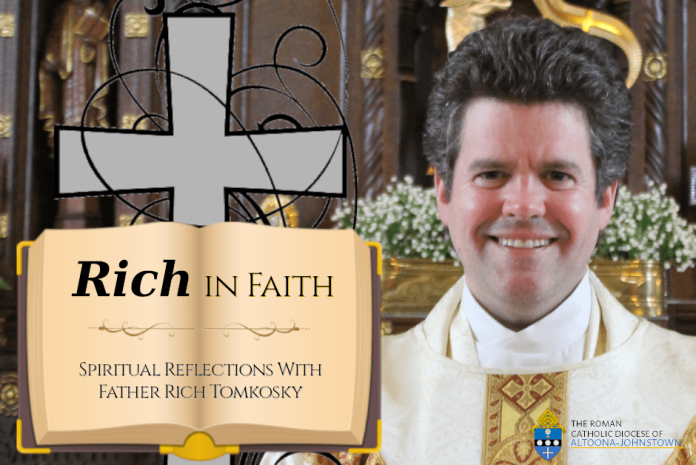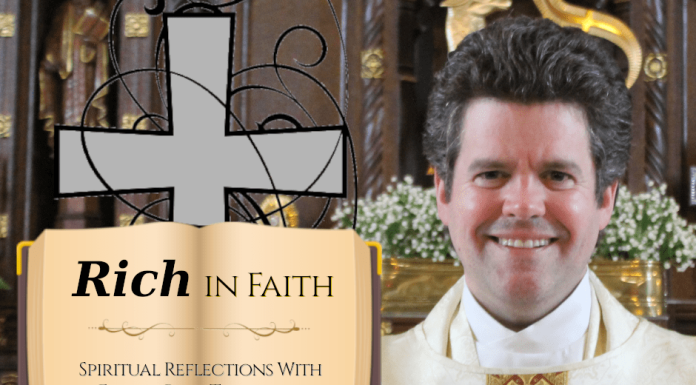By Father Rich Tomkosky
With religious education classes underway at parishes throughout the diocese, it is a good time to reflect on the meaning of teaching the Catholic faith. Catechesis is part of the Church’s teaching mission to put young and old alike into direct contact with the Blessed Trinity, in our minds, hearts, and wills, that is, in our entire person.
Remember that parents and families are the primary teachers of children and young people in the ways of the faith; Catholic schools and religious education classes are supplements, but not substitutes for a lived faith in the family. As the old wise saying goes, the faith is caught more than taught, although it does need to be taught well.
In our catechesis/education in the Catholic faith, it needs to focus on three different but essential parts of the human person to bring it all together as the official Church Catechism points out.
Knowledge about the Catholic faith is probably the most obvious and what we think of when we think of the topic of catechesis, adult education, or religion classes for our children. This part concerns teaching others about Jesus, the Blessed Trinity, the Sacraments, the moral life, prayer, etc. Basically this is the material for catechisms or books about the faith.
This whole package of the Faith on an intellectual level should be presented in a systematic way to our young people, whether they are in a parish religious education program, in a Catholic school, or home-schooled. To do this well, those of us who are teachers of the faith: priests, sisters, parents, catechists, and Catholic school teachers must strive ourselves to know our Catholic faith better, as handed down by the Church. And as we grow in knowledge, then with the help of God’s grace, we need to live it and communicate it well to others, both by our example and teaching it with a humble and prayerful heart.
Our job is to point others to the Lord’s Way of Life instead of the world’s way which so often leads to death on a spiritual level. The foundation for all our teaching in the Church must be a prayerful and obedient spirit which enables us to teach God’s truth as handed down by God’s Church instead of our opinions. We must walk the walk and not just talk the talk.
Good catechesis or teaching should affect not just the mind but one’s heart. This is the second component to teaching the faith well.
Our knowledge of the Lord in our minds should lead us to love Him, His Church, and His people in our heart. Head knowledge without heart knowledge is ultimately vain and empty.
All of us have encountered people who went to Catholic school for 12 or 16 years, or religious education classes for many years and were Confirmed, and now they are far away from the Church and the practice of the faith. Why is that? Lots of reasons, but one of the main ones I have observed is so many Catholics learned about the faith in their minds like math or English, etc., but for some reason never allowed it to penetrate their hearts — into the core of their being.
Without growing in prayer and a life of devotion, the faith will not come alive, especially when we move into the difficulties of adulthood in this imperfect world. This is the challenge to parents and catechists alike: to help our children and young people not just to know the faith, but to love the faith. Showing our children how to pray and to persevere in it daily goes a long way to correcting this problem of a split between one’s head and one’s heart in terms of the Catholic faith. It is an ultimate tragedy and failure of catechesis if it doesn’t lead to transformation in the heart of the person being taught, be it adults (e.g. R.C.I.A.) or with children.
Finally, good catechesis helps to form one’s will in the ways of God. Along with helping people to know intellectually what the Lord teaches and expects of us and helping one to come to love the Lord in one’s heart, the teaching of the faith should lead us to form habits of virtue and goodness in order to consistently choose what is good and holy.
Again, this is a particular challenge for us human beings. It’s one thing to know the Catholic faith well, but it’s another thing to develop a love for the Lord and the faith in our hearts, but the hardest thing for us is to take that knowledge and love and put it into action in the nitty gritty of daily life with all its temptations and distractions and to choose the Good with God in season and out of season. But it is essential for us, this narrow path – if we want to become the saints God calls all of us to be, by virtue of our Baptism, into communion into the Life of the Trinity.
Holy strength of will and becoming virtuous in all our actions takes much time and effort, but never forget the Holy Spirit is there to help us with the grace. May our catechesis in the Church and family lead to this noble end. God bless you.
Father Rich Tomkosky is the Pastor of Saint Thomas the Apostle Parish in Bedford and the Pastor of Seven Dolors of the Blessed Virgin Mary Parish in Beans Cove.































